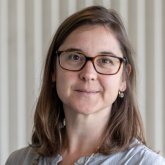PhD Position in Technology Ethics
The University of Twente is looking for a doctoral candidate (DC) to work on “Anticipatory Ethics of Self-Sovereign Identity in Data Spaces.” The candidate should have a strong background in philosophy (Bachelor’s or Master’s degree) and enthusiasm for interdisciplinary research (philosophy, law, data science and AI) within an international project (HARNESS Training Network, see below). This is a four-year position.
The increasing integration of data-intensive and Artificial Intelligence (AI) systems into everyday life has made digital identity a pervasive and inescapable reality. Every time we engage in digital transactions—whether placing a food order or accessing an online service—we generate and share a wealth of personal data. This includes usernames, passwords, contact information, device identifiers, purchase history, and more. However, this growing reliance on digital identity raises pressing ethical, political, and legal questions: Who owns and controls our data? How should our digital and real-world identities be related? What kind of digital infrastructure is needed to regulate data flows in data spaces?
At the heart of these issues lie tensions between the interests of individuals, states and supranational political unions, and private corporations. Two major approaches have emerged in response to these challenges. The first approach is the self-sovereign identity (SSI) model (Allen, 2016), which proposes a decentralized framework where individuals retain full control over their identity data, determining who can access it without reliance on central authorities such as governments, corporations, or platform providers (e.g., Google or Facebook). This model leverages cryptographic technologies—such as blockchain and W3C’s Decentralized Identifiers (DIDs)—to enhance privacy, security, and user autonomy. While SSI is often championed by cyberlibertarians, it has also been defended on human rights and kantian ethical grounds, and may be compatible with less individualistic moral and political frameworks. The second approach focuses on strengthening political sovereignty over data flows, exemplified by the European Union’s push for European Data Spaces—regulated digital environments designed to facilitate a European Digital Single Market while safeguarding citizens’ rights and promoting economic and societal benefits. The EU increasingly supports both political sovereignty over data and self-sovereign identity, yet it remains unclear whether these two visions—centered on different loci of sovereignty—are fully compatible or whether they will ultimately serve the same ethical and political values.
Doctoral Research Objectives
The selected DC will explore these foundational questions by undertaking the following research objectives:
1. Conceptual Analysis of Self-Sovereign Identity (SSI):
- Compare, categorize, and evaluate different conceptions of SSI as found in EU policy documents, scholarly literature, the private sector, and activist movements.
- Examine the underlying moral and political theories supporting different visions of SSI (e.g., libertarian, kantian, communitarian, republican, etc.).
2. Foresight Analysis of SSI and Emerging Data Governance Structures:
- Employ foresight methodologies (which the candidate will master at UT) to anticipate and classify potential risks to SSI arising from new data flows and technologies.
- Assess how the European Common Data Spaces—once implemented—may interact with, complement, or threaten the principles of SSI.
3. Development of an Anticipatory Ethical Framework (with a political philosophy component):
- Construct a normative framework for evaluating and resolving potential conflicts and trade-offs between:
- SSI,
- Data sovereignty at national and European levels,
- Fundamental rights and democratic values.
- Consider how foreseable geopolitical shifts—such as the rise of illiberal states, techno-nationalism, techno-authoritarianism, and techno-feudalism—may impact the governance and future of SSI;
- Analyze the role of personal data voluntarily injected into Data Spaces, evaluating whether these environments could function as new surveillance infrastructures and whether SSI offers a form of resistance against corporate and state overreach.
The DC will be encouraged to develop their own theoretical approach to these questions and to draw upon relevant moral and political theories of their choosing.
Possible secondments: Rathenau Institute (3 months, remote , on societal impact), VUB (6 months in Brussels, on fairness, accountability, transparency, and ethics in data processing related to SSI).
The project will be supervised by prof. dr. Philip Brey (Promotor, UT), Dr. Yashar Saghai (first daily supervisor, UT), and Dr. Gloria González-Fuster (second daily supervisor, VUB).
Information and application
Are you interested to be part of our team? Please submit your application by May 28, 2025 using the link and include:
- A cover letter (maximum 2 pages A4), emphasizing your specific interest, qualifications, experience, and motivations to apply for this position;
- A Curriculum Vitae, including a list of all courses attended and grades obtained, and, if applicable, a list of publications and references;
- A writing sample (for instance, Master’s thesis chapter);
- Contact information for two academic references;
- [for non-native English speakers] An IELTS-test, Internet TOEFL test (TOEFL-iBT), or a Cambridge CAE-C (CPE);
- Fill out and include the HARNESS eligibility criteria form available here .
Additional information can be acquired via email from Dr. Yashar Saghai (y.saghai@utwente.nl).
About the department
The section is internationally leading in the philosophy and ethics of technology (https://www.utwente.nl/en/bms/phil/). The section also participates in the interuniversity 4TU.Centre for Ethics and Technology (www.ethicsandtechnology.eu). Both the section and the Centre have a strong international orientation and include members from many different nationalities.
About the HARNESS Training Network
HARNESS (HARNESSing AI and Data-Intensive Technologies) is an international, interdisciplinary and cross academic-industry training network hosted across Spain, Ireland, the Netherlands, Lithuania, Italy and Belgium (MSCA Doctoral Network) formed to train a new generation of 13 Doctoral Candidates (DCs) as PhD graduates in the disciplines of law, ethics or computer science with the common goal of researching methods and tools to make Integrated Assessments of risks and impacts for current Data intensive and AI technologies.
HARNESS DCs will receive training to enable them to integrate and apply arguments, analyses and tools from across the fields of artificial intelligence, law and ethics, so that they can excel in research and data science careers within digital services industry and public policy sectors.
DCs will receive a strongly multidisciplinary training program, bringing together world-class researcher in Artificial Intelligence, Law and Ethics to offer an excellent structured research programme operating at the critical boundaries between these three fields. The research supervision and training for DCs is delivered by a network composed of the following world-class research groups and industry practitioners. A further set of industry partners will offer DCs a rich range of relevant industry experience through training secondments. More information on the HARNESS project and additional job offers can be found here.
About the organisation
At the Faculty of Behavioural, Management and Social Sciences (BMS), we unite the worlds of people and technology to address today’s complex societal challenges. We are passionate about understanding human behaviour, fostering responsible innovation, and designing solutions that create societal value. Our educational programmes span disciplines such as Psychology, Business Administration, Public Administration, Communication Sciences, Philosophy, Educational Sciences, and Health Sciences. Through our bachelor’s and master’s degrees, Professional Learning & Development programmes, and interdisciplinary research themes – including Emerging Technologies & Societal Transformations, Resilience, Smart Industry, Learning, and Health – we empower students and researchers to make a positive societal impact.
At BMS, we combine critical thinking with practical action. From advancing sustainable mobility with innovations like the world’s most efficient hydrogen car to shaping policies that promote digital inclusion, our work contributes to a healthier, fairer, and more sustainable future. Whether it’s exploring how technology influences human behaviour or leveraging data and innovation to transform industries and communities, we ensure that technology serves people – and not the other way around.
As an employer, BMS offers a vibrant, inclusive, and entrepreneurial environment where you can thrive personally and professionally. Join us and become part of a forward-thinking community that equips you to shape the future – for yourself and society. With us, you will become part of a leading technical university with increasing, positive social impact.




